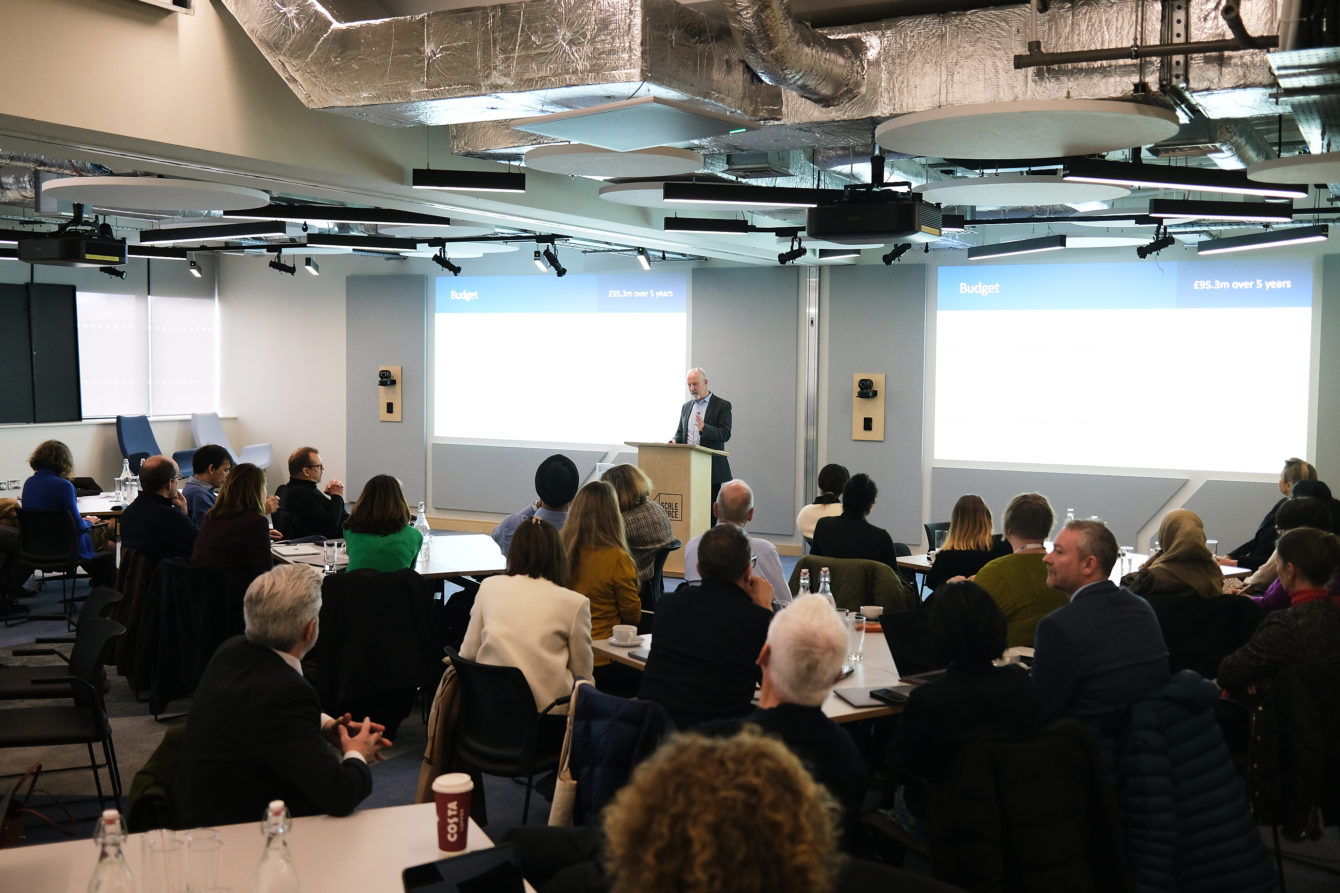Event Imperial Biomedical Research Centre Showcases Work to Tackle Major Health Issues

Researchers, clinicians and patient representatives came together to launch the National Institute for Health and Care Research (NIHR) Imperial Biomedical Research Centre (BRC).
The NIHR Imperial BRC launch event took place at Imperial College London’s White City Campus in January. Researchers and clinicians from the BRC presented their work and plans to tackle health challenges in areas such as digestive and respiratory diseases, and neurological and mental health conditions.
The NHS-hosted NIHR Imperial BRC is a partnership between Imperial College Healthcare NHS Trust and Imperial College London and was awarded a £95.3 million investment by the NIHR in 2022. The five-year award will support research that translates scientific discoveries into new treatments, diagnostics and medical technologies, in order to improve patient care, locally and around the world.
As well as allocating funds for specific research projects, the BRC provides research infrastructure such as clinical trial capacity, state-of-the-art data handling and academic training.
The BRC will focus on 14 Themes which address the most pressing health needs in north-west London. These include existing research themes – such as cardiovascular, cancer and infection and antimicrobial resistance – as well as new areas of work, such as pregnancy and premature births, respiratory and biomedical engineering.
At the launch event, some of the 14 theme leads spoke about their research aims and took feedback from the other attendees, including public partners. They explained how each theme is linked by four common threads:
- Early diagnosis – developing new tests and improving current testing to speed up diagnosis and allow earlier treatment
- Precision medicine – tailoring treatment to a patient’s specific needs to improve outcomes
- Digital health – using computer technology to provide clinicians with more accurate information for better treatment and allow patients to manage their health
- Convergence science – bringing different scientific fields together to provide new perspectives and solve complex health research challenges
Some examples of projects being worked on in the theme areas include the potential use of psychedelics in treating mental health conditions and new bioelectronic medicine approaches to treating dementia. Bioelectronic medicine is the use of electronic devices, such as implants, to control the electrical signal used by the nervous system.
The importance of collaboration was emphasised in each of the presentations and discussions. Also discussed was the BRC’s commitment to equality, diversity and inclusion (EDI). This is crucial to the success of the BRC and is underpinned by a new EDI framework, which will ensure research studies and impact fully reflect the local community and staff it supports. For example, diversifying recruitment in the workplace and engaging with under-represented patient groups.
The vital role of patients and the public in improving the quality of healthcare was highlighted by the patient representatives from the Imperial Patient Experience Research Centre. Patient representatives help inform and influence research by sharing their lived experiences of a health condition or by representing the views of their community. The importance of researchers, clinicians and the public working together from the start to the end of studies was discussed as well as the importance of involving underrepresented communities in research.
Professor Mark Thursz, Director of the NIHR Imperial Biomedical Research Centre, said: “It was wonderful to get together to mark the start of this new and exciting chapter for our BRC.
“Hearing from each of our research theme leads really demonstrated the scale of our ambition and the difference we can make to patients and communities across north-west London.
“I’m grateful to everyone for their hard work so far, particularly to all our patients and public partners who are helping shape the direction of our research. I am incredibly excited about what we can achieve together.”
Pournamy Vemal, a public partner for the Imperial Biomedical Research Centre, said: “The event was truly an amazing opportunity to be part of, even for myself coming from a non-scientific background. I enjoyed engaging with researchers and clinicians and hearing about their important work – it’s inspired me to get involved in future research projects.”
